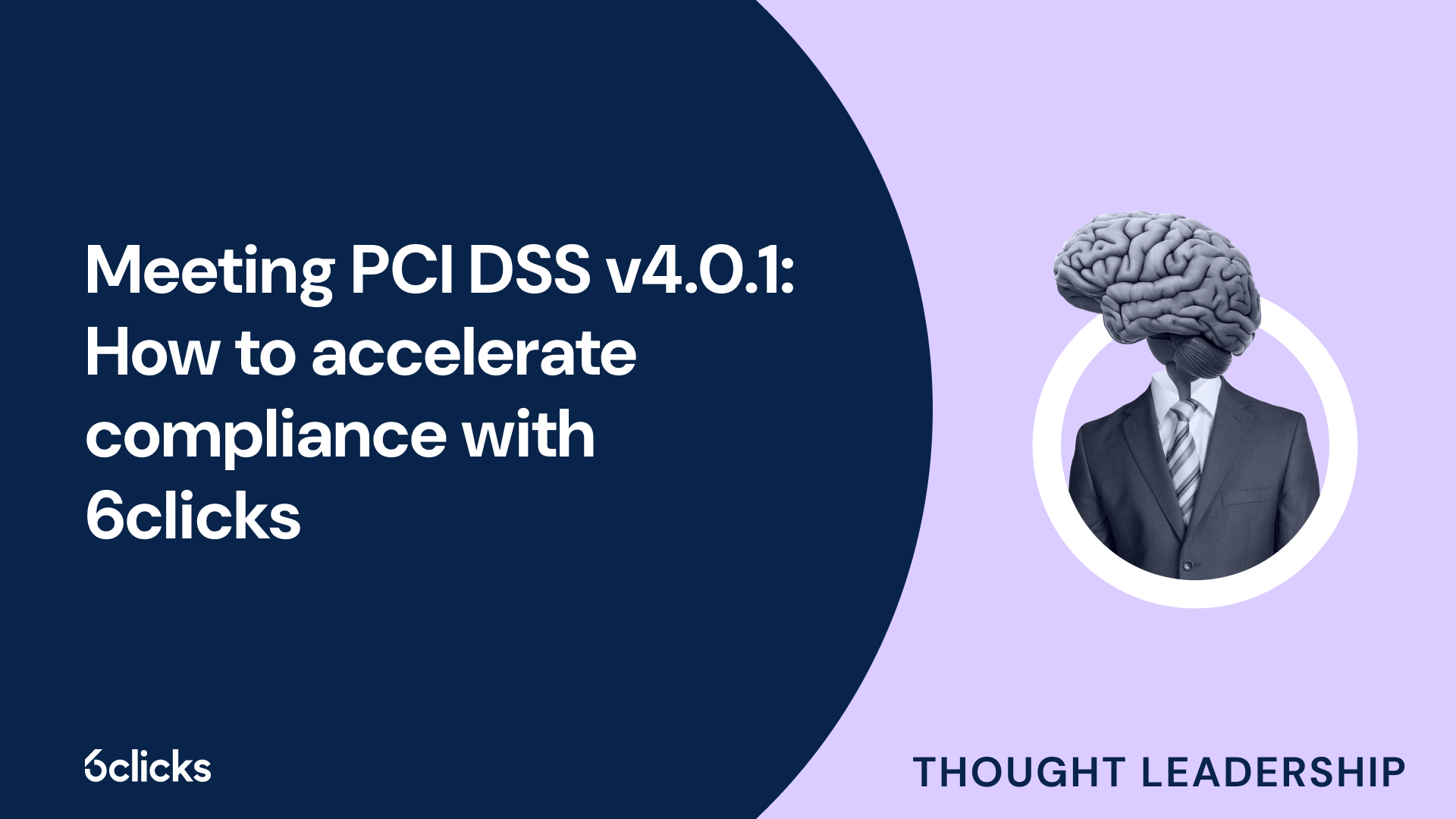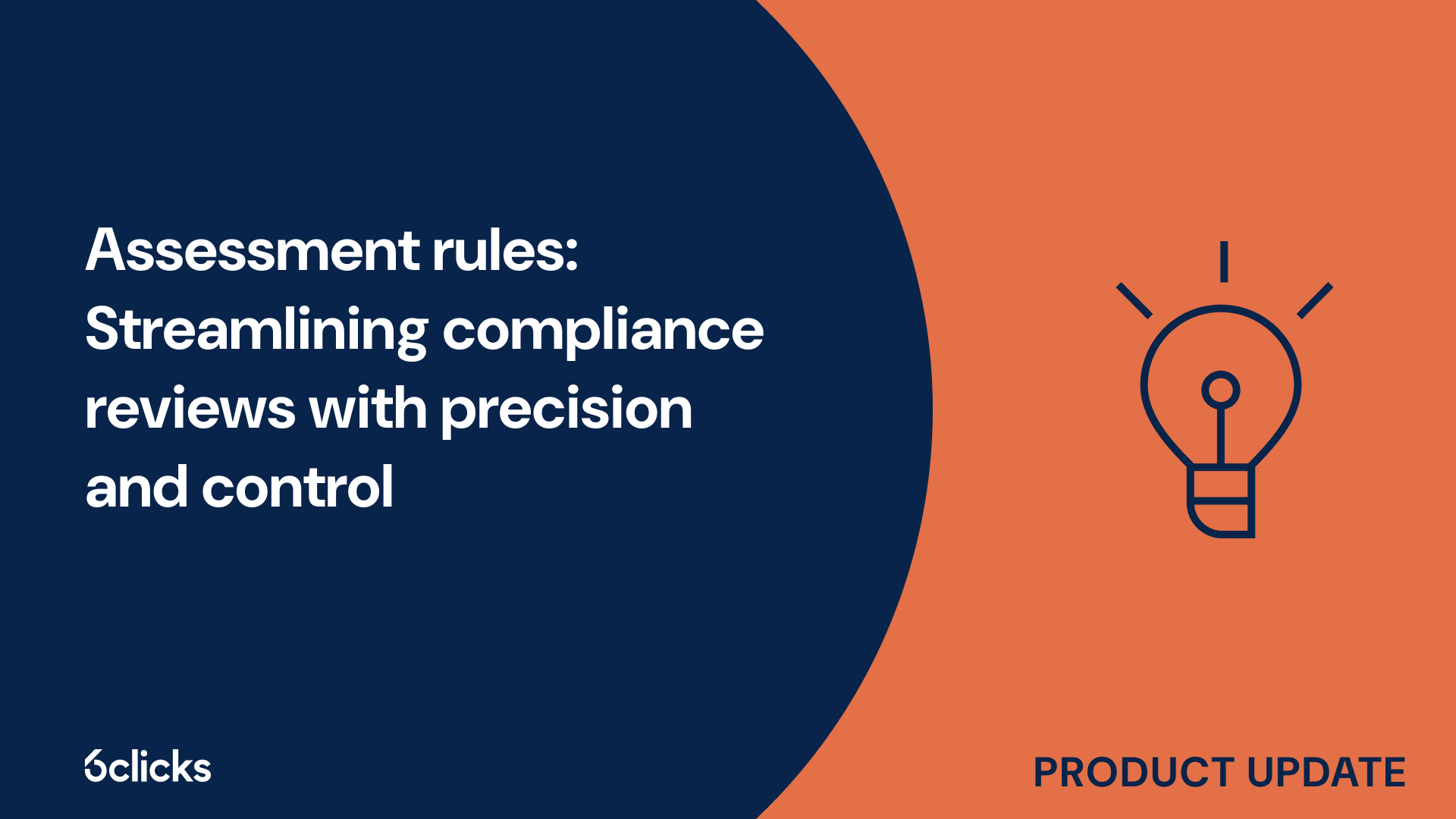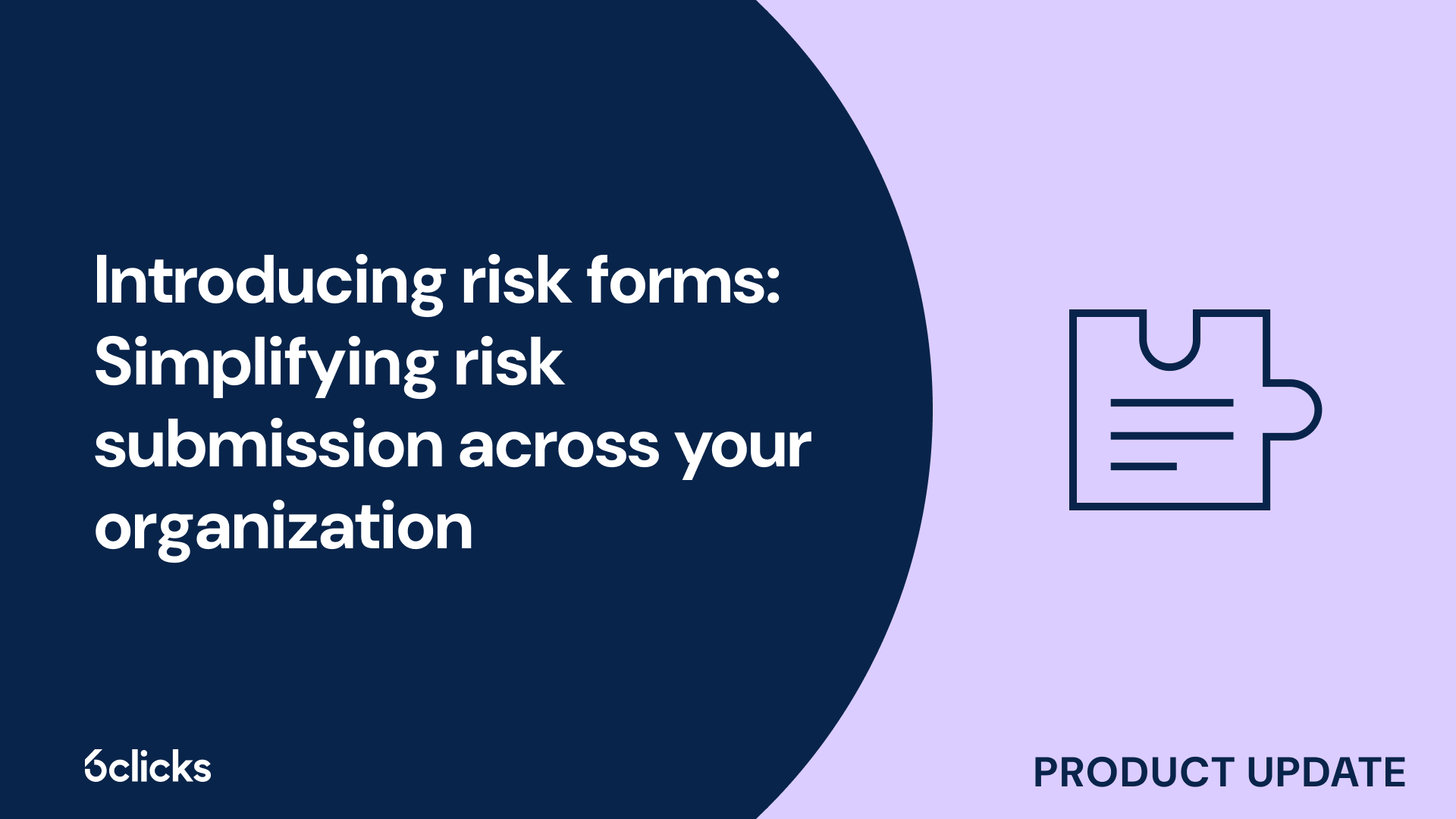The GRC buyer’s guide for 2025: Building resilience with AI-powered, federated solutions
Discover the ultimate GRC buyer's guide for 2025! Uncover how AI-powered, federated solutions transform compliance and security management for industries like government, aerospace, banking, and more. Learn about centralized control, continuous compliance, and advanced cyber GRC capabilities. Download now!
-1.png?width=200&height=249&name=Group%20193%20(1)-1.png)
The GRC buyer’s guide for 2025: Building resilience with AI-powered, federated solutions
What is an ACL?
An Australian Credit License (ACL) is a legal document issued by the Australian Securities and Investments Commission (ASIC) that enables businesses to engage in credit activities. Under the National Consumer Credit Protection Act 2009 (NCCP Act), any business that wants to provide credit or credit-related services must hold an ACL. This includes activities such as providing credit assistance, offering credit contracts or consumer leases, acting as a credit intermediary, and providing loan broking services. Obtaining an ACL involves a comprehensive application process that assesses the applicant's financial situation, business model, compliance obligations, and regulatory requirements. Once licensed, ACL holders must comply with various conduct obligations and disclosure requirements outlined by ASIC. The ACL is essential for businesses in the credit industry as it ensures compliance with consumer protection laws and provides legitimacy and accountability in their operations.
What is an AFSL?
An AFSL, or Australian Financial Services License, is a legal document that allows a company or individual to provide financial services to clients in Australia. It is a significant requirement for anyone operating within the financial services industry, as it ensures that providers meet certain regulatory standards and obligations.
Obtaining an AFSL involves a thorough licensing process administered by the Australian Securities and Investments Commission (ASIC). This process assesses an applicant's ability to provide financial services in a competent, honest, and fair manner. It involves meeting specific criteria and demonstrating an understanding of regulatory requirements, compliance obligations, and responsible decision-making.
Once an AFSL is granted, licensees are responsible for maintaining compliance with ongoing regulatory requirements. This includes adequately managing conflicts of interest, implementing effective risk management systems, and having proper internal dispute resolution processes in place. Licensees must also adhere to conduct obligations, such as providing clients with accurate and timely information and acting in their best interests.
Difference between ACL and AFSL
The main difference between an Australian Credit Licence (ACL) and an Australian Financial Services Licence (AFSL) lies in the types of services they cover. An ACL is required for individuals or business entities providing credit services, such as lending and credit broking. On the other hand, an AFSL is needed for providing a broader range of financial services.
While both licences involve a thorough licensing process administered by the Australian Securities and Investments Commission (ASIC), the ACL is specific to credit-related activities, while the AFSL covers a wider range of financial products and services. This means that if you want to provide credit services, such as issuing credit cards or lending money, you need to obtain an ACL. However, if you wish to offer various financial services, including advice or dealing in financial products, you need to obtain an AFSL.
Therefore, the key distinction lies in the scope of services covered by each licence. An ACL is specific to credit services, while an AFSL allows for offering a broader range of financial services. It is important to note that both licences come with regulatory requirements and compliance obligations that must be adhered to in order to ensure the provision of competent and fair financial services.
Overview of the Australian financial services licence (AFSL)
The Australian financial services licence (AFSL) is a regulatory requirement for entities wishing to provide financial services in Australia. Administered by the Australian Securities and Investments Commission (ASIC), obtaining an AFSL ensures that businesses operate within the regulatory framework and meet the necessary conduct and compliance obligations. The AFSL covers a wide range of financial products and services, including providing advice, dealing in financial products, making markets, and providing custodial or depository services. It is essential for businesses offering services such as financial planning, investment advice, insurance broking, or operating a managed investment scheme. Obtaining an AFSL involves a comprehensive application process, which includes demonstrating adequate financial resources, having appropriate training and competence, implementing robust risk management systems, and maintaining a high standard of customer care. Compliance with ongoing reporting requirements, including notifying ASIC of significant breaches or changes to the business, is also a crucial aspect of holding an AFSL. With an AFSL, businesses can provide legitimate financial services and build trust with consumers by demonstrating their commitment to regulatory requirements and consumer protection.
Definition of the AFSL
The Australian financial services industry is regulated by the Australian Securities and Investments Commission (ASIC), which requires certain entities to hold an Australian Financial Services License (AFSL). An AFSL authorizes a business or individual to provide financial services to clients or customers.
The purpose of an AFSL is to ensure that financial services are provided in a fair, efficient, and transparent manner. It establishes the regulatory framework for activities such as providing financial product advice, dealing in financial products, making a market in financial products, or providing a custodial or depository service.
To obtain an AFSL, applicants must go through a licensing process. This process involves submitting an application to ASIC, which assesses the applicant's ability to meet the regulatory requirements and conduct obligations. This includes a review of the applicant's financial resources, risk management systems, responsible managers, and compliance processes.
In recent years, ASIC has made several changes to the licensing process to enhance consumer protection and streamline regulation. These changes include the introduction of simplified licensing pathways for certain low-risk activities, as well as the implementation of a new digital licensing system to improve efficiency and reduce processing times.
Who Needs an AFSL?
An AFSL (Australian Financial Services License) is required for individuals or businesses that provide specific financial services. These services may include general and life insurance, claims handling, financial advisers, and even cryptocurrency-related activities.
Insurance companies and brokers that offer general or life insurance products need to hold an AFSL. This license ensures that they are knowledgeable in the industry, follow regulatory guidelines, and act ethically and responsibly when providing insurance services. Claims handling, which involves managing insurance claims on behalf of policyholders, also falls under the AFSL requirements.
Financial advisers who provide advice on financial products including superannuation, investments, and insurance also require an AFSL. This ensures that they have the necessary qualifications and meet the conduct obligations necessary to provide reliable and appropriate financial advice.
In recent years, there has been an increasing focus on regulating the cryptocurrency market. As a result, businesses and individuals involved in providing cryptocurrency-related services may also need to hold an AFSL.
By requiring individuals and businesses to hold an AFSL, the Australian government aims to ensure that consumers receive fair, transparent, and reliable financial services. The licensing process assesses the applicant's ability to meet regulatory requirements, conduct obligations, and provide appropriate financial advice or services.
Types of businesses that require an AFSL
Certain types of businesses require an AFSL (Australian Financial Services License) to operate in the financial services industry. These businesses are classified as higher risk and attract more scrutiny in their AFSL applications.
One such type of business is MDA (Managed Discretionary Account) operators and advisers. MDA operators provide portfolio management services on behalf of clients, usually through the use of a discretionary account. These businesses need to hold an AFSL to ensure they have the necessary expertise and systems in place to manage client funds responsibly.
Money remitters also fall under the category of businesses that require an AFSL. Money remitters provide services for the transfer of funds domestically or internationally. Given the nature of their activities, it is essential that they have appropriate systems in place to prevent money laundering and terrorist financing.
OTC (Over-the-Counter) derivatives market makers are another type of business that requires an AFSL. These entities facilitate the trading of derivatives products directly between parties, rather than on an exchange. This business activity involves higher risks, and therefore, stricter regulations are in place to ensure market integrity and consumer protection.
Lastly, businesses operating in the robo-advice space are also subject to AFSL requirements. Robo-advisers use algorithms and technology to provide automated financial advice to clients. As this form of advice relies heavily on technology, it is crucial to have proper risk management systems and compliance processes in place to protect consumers.
Obtaining an AFSL
Obtaining an Australian Financial Services License (AFSL) is a crucial step for businesses operating in the financial services industry. The process involves several steps and requires a thorough understanding of the requirements and documentation needed to ensure compliance with regulatory obligations.
To obtain an AFSL, businesses need to follow a specific process outlined by the Australian Securities and Investments Commission (ASIC). The first step is to assess the appropriate license type and class that matches the intended services to be offered. This decision should consider the business's activities, target clients, and the financial products involved.
Next, businesses need to prepare the necessary documentation for their AFSL application. This includes providing details about the business structure, personnel, education and experience, compliance processes, and risk management systems. Additionally, a business must demonstrate its financial viability and have adequate resources to meet its ongoing obligations.
Once the documentation is prepared, it can be submitted to ASIC for assessment. ASIC will review the application and may request additional information or clarification. It is important to note that recent changes in the licensing process may affect the requirements or timelines, so businesses should stay informed and regularly check ASIC's website for updates.
Throughout the process, it is essential to maintain open communication with ASIC's licensing team. Businesses should communicate any variations or changes to their application promptly and seek guidance if needed. This will ensure a smooth and efficient application process.
Obtaining an AFSL is a significant undertaking, but it is crucial for businesses operating in the financial services industry to comply with regulatory requirements and provide clients with confidence in their services. By following the steps outlined by ASIC and staying informed about any changes, businesses can navigate the licensing process successfully.
Benefits of obtaining an AFSL
Obtaining an Australian Financial Services License (AFSL) provides numerous benefits for businesses operating in various industries. From general and life insurance to financial advising, cryptocurrency, and marketplace lending, an AFSL offers the necessary licensing and responsible entity services to operate legally and responsibly.
One of the key advantages of holding an AFSL is the enhanced credibility it brings to a company. It demonstrates that the business has met the strict regulatory requirements set by the Australian Securities and Investments Commission (ASIC). This credibility can help build trust and confidence among clients, leading to increased business opportunities.
Another benefit is the ability to expand the range of services offered. With an AFSL, businesses have the opportunity to provide a wider variety of financial products and services, catering to the diverse needs of their clients. This expanded service offering can help attract more customers and generate additional revenue streams.
Furthermore, obtaining an AFSL ensures compliance with regulatory obligations. ASIC imposes strict guidelines to protect consumers and maintain the integrity of the financial services industry. By holding an AFSL, businesses can ensure that they adhere to these regulations, minimizing the risk of non-compliance and potential penalties.
Responsibilities and regulatory requirements for holding an AFSL
Holding an Australian Financial Services License (AFSL) comes with several responsibilities and regulatory requirements that financial service providers need to comply with. These obligations are set out in the Corporations Act and enforced by the Australian Securities and Investments Commission (ASIC).
One of the fundamental responsibilities of AFSL holders is to meet the general conduct obligations outlined in section 912A of the Corporations Act. These obligations include acting efficiently, honestly, and fairly, as well as having adequate resources to provide the financial services. AFSL holders must also take reasonable steps to ensure that their representatives comply with these obligations.
In addition to the general conduct obligations, ASIC outlines specific conduct obligations for AFSL holders in its Regulatory Guide 104. These obligations cover areas such as providing appropriate advice, managing conflicts of interest, ensuring the adequacy of systems and controls, and having a dispute resolution process. AFSL holders must also comply with the licensing obligations, including the requirement to have responsible managers overseeing the provision of financial services.
Obtaining and maintaining an AFSL involves a rigorous regulatory process. The compliance process includes submitting an application to ASIC, demonstrating the necessary qualifications and experience, and providing evidence of meeting the relevant regulatory requirements. Once granted, AFSL holders must continue to fulfill ongoing compliance obligations, such as notifying ASIC of any changes to their business or circumstances.
Overview of the Australian credit licence (ACL)
The Australian Credit Licence (ACL) is a license issued by the Australian Securities and Investments Commission (ASIC) that allows individuals and businesses to provide credit services in Australia. This license is governed by the National Consumer Credit Protection Act (NCCP) and requires license holders to comply with a range of regulatory requirements and obligations. The ACL aims to safeguard consumers by ensuring that credit providers operate ethically and responsibly. To obtain an ACL, applicants must go through a licensing process that involves meeting the necessary qualification and experience criteria, as well as undergoing fit and proper assessments. Once granted, ACL holders must adhere to ongoing compliance obligations, including maintaining adequate financial resources, having appropriate dispute resolution processes in place, and ensuring that their conduct aligns with the standards set by ASIC. By obtaining an ACL, individuals and businesses can engage in credit activities such as providing loans, acting as a credit intermediary, or offering credit-related services while adhering to the regulatory framework established by ASIC.
Definition of the ACL
The Australian credit licence (ACL) is a legal requirement for individuals or business entities that wish to provide certain credit services within Australia. The ACL is issued by the Australian Securities and Investments Commission (ASIC) and serves as a regulatory framework for the credit industry.
In simple terms, an ACL is a license that allows individuals or businesses to engage in credit-related activities. These activities can include providing credit, credit assistance services, credit contracts, credit card activities, and other forms of credit-related transactions. Without an ACL, individuals or business entities are prohibited from providing these services.
Obtaining an ACL involves a comprehensive process that ensures applicants meet certain criteria. This process includes demonstrating the necessary financial stability, professional competence, and compliance with relevant regulatory requirements. Once granted, the ACL imposes conduct obligations and compliance responsibilities on the licensee to ensure the fair and responsible provision of credit services.
Who needs an ACL?
Who needs an ACL in Australia? An Australian Credit License (ACL) is required by individuals or businesses that intend to engage in credit activities as defined by the National Consumer Credit Protection Act 2009. This includes providing credit, credit assistance services, credit contracts, and activities related to credit cards. It is important to note that engaging in credit activities without an ACL is a breach of the law.
To obtain an ACL, applicants must meet certain requirements. These include demonstrating financial stability, having the necessary professional competence, and ensuring compliance with regulatory requirements set by the Australian Securities and Investments Commission (ASIC). The licensing process involves submitting an application, providing supporting documents, and paying the required fees.
There are, however, certain exemptions and authorizations that apply. For example, individuals or businesses that act as authorized representatives of a credit licensee are not required to hold their own ACL. They can perform credit activities on behalf of the licensee under its ACL.
Types of businesses that require an ACL
Types of businesses that require an Australian Credit License (ACL) include various entities involved in providing credit services and assistance. A credit license is necessary for businesses engaged in credit activities such as lending, issuing credit cards, providing credit guarantees, or acting as credit intermediaries.
Credit providers, including banks, financial institutions, and non-bank lenders, are required to hold an ACL. These entities offer loans, credit cards, and other credit facilities to consumers or businesses.
Credit assistance providers, such as mortgage brokers and debt collectors, also need an ACL. Mortgage brokers assist consumers in finding suitable home loan products, while debt collectors help recover outstanding debts on behalf of lenders or credit providers.
Other businesses that require an ACL include companies involved in traditional trustee services, collective investment vehicles, and non-cash payment providers.
Obtaining an ACL
Obtaining an Australian Credit License (ACL) is a crucial step for credit providers, credit assistance providers, and other relevant businesses to legally conduct credit activities. The process involves several steps and requirements to ensure compliance with regulatory obligations.
To begin the application process, businesses must complete the ASIC Form 101 (Application for Australian Credit License) and provide supporting documentation. This includes a detailed business plan, information about the responsible managers, and a disclosure document outlining the credit activities offered.
One of the key requirements for obtaining an ACL is the need for a suitable person who will be responsible for overseeing the credit activities. This person must possess the necessary skills, knowledge, and experience in the financial services industry.
Financial resources are another important criterion. Applicants must demonstrate that they have sufficient financial capability to meet their obligations as a credit licensee. This includes maintaining a minimum net asset requirement and having appropriate risk management and compliance processes in place.
There are fees associated with the application process, including an application fee and an annual fee for holding an ACL. These fees can vary based on the size and nature of the credit business.







